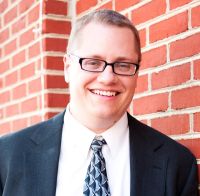Presentation: I Have A NoSQL toaster
What You’ll Learn
- Understand the differences and strengths of different NoSQL data store approaches.
- Hear how NoSQL is different than a traditional RDBMS.
- Learn more about what Couchbase offers.
Abstract
NoSQL is a catch-all term that covers a lot of different types of data storage. Is it really helpful to group them together by one thing they don't have? Think about it like this: my toaster is as much NoSQL as any database! So, how can we make more sense of this new breed of database management systems?
In this talk I cover the four main data models that have been part of the past ten years' NoSQL movement: key-value, document, columnar and graph. I explain how they differ and when you might want to use each one.
QCon: What is the focus of your work today?
Matthew: I am a Developer Advocate with Couchbase. It’s our job to improve awareness of Couchbase, help grow a healthy developer community, create useful content for developers, and get feedback about our software.
QCon: What’s the motivation for your talk?
Matthew: I have a love/hate relationship with the term “NoSQL”. It describes what something *isn’t*, which is only helpful from a marketing standpoint. Once you dig in, you see that there are a lot of categories and differentiation.
QCon: How you you describe the persona of the target audience of this talk?
Matthew: Anyone who isn’t familiar with NoSQL databases or is curious about them. Or people who have used 1 or 2 NoSQL databases, but haven’t been exposed to the wider world.
QCon: How would you rate the level of this talk?
Matthew: It’s definitely oriented to a NoSQL beginner and/or architects who are trying to figure out if there are alternative approaches to data storage that can help them solve problems.
I think that people will walk away with a broader understanding of what NoSQL means. It’s my hope that they will be armed with an idea of what use cases that various NoSQL databases can help with. The only thing worse than not taking advantage of these interesting databases is using them for the wrong thing.
QCon: What do you feel is the most important thing/practice/tech/technique for a developer/leader in your space to be focused on today?
Matthew: I think it will always be change. If you can deal with change, recognize meaningful change, distinguish fads, and respond to new tools and technology in a meaningful and genuine way, then you are going to be successful. If anyone knows how to do that well, please let me know :)
Similar Talks
Scaling DB Access for Billions of Queries Per Day @PayPal

Software Engineer @PayPal
Petrica Voicu
Psychologically Safe Process Evolution in a Flat Structure

Director of Software Development @Hunter_Ind
Christopher Lucian
PID Loops and the Art of Keeping Systems Stable

Senior Principal Engineer @awscloud
Colm MacCárthaigh
Are We Really Cloud-Native?

Director of Technology @Luminis_eu
Bert Ertman
The Trouble With Learning in Complex Systems

Senior Cloud Advocate @Microsoft
Jason Hand
How Did Things Go Right? Learning More From Incidents

Site Reliability Engineering @Netflix
Ryan Kitchens
What Breaks Our Systems: A Taxonomy of Black Swans

Site Reliability Engineer @Slack, Contributor to Seeking SRE, & SRECon Steering Committee
Laura Nolan
Cultivating High-Performing Teams in Hypergrowth

Chief Scientist @n26
Patrick Kua
Inside Job: How to Build Great Teams Within a Legacy Organization?

Engineering Director @Meetup
